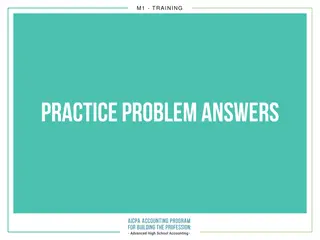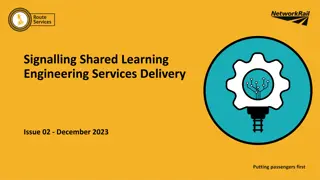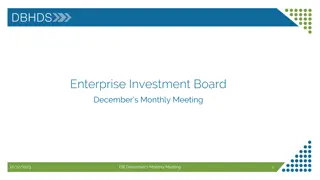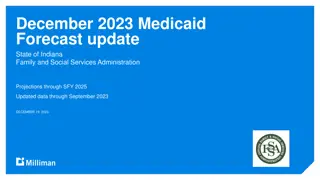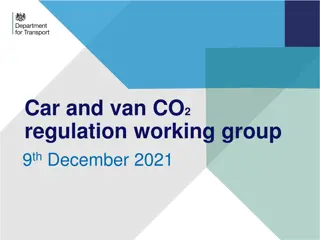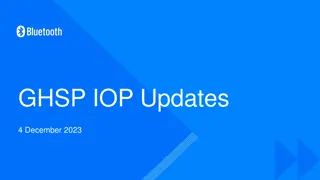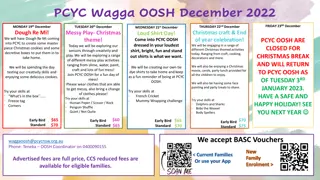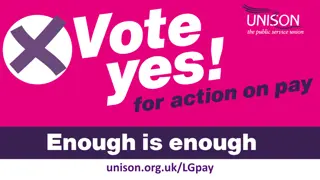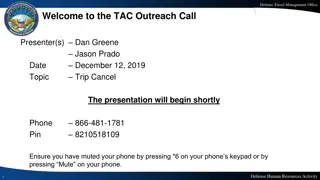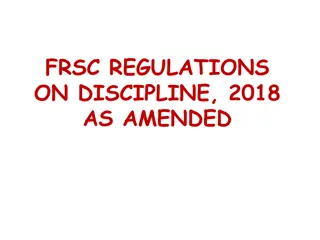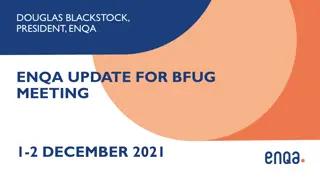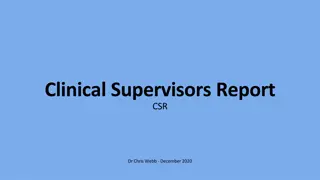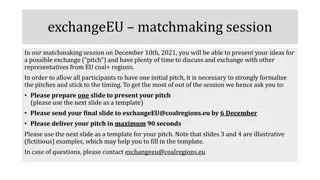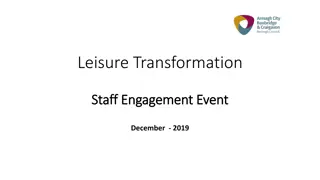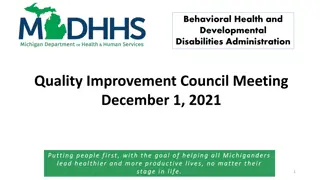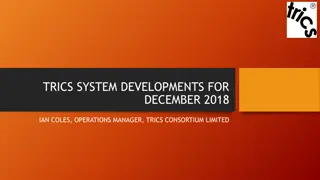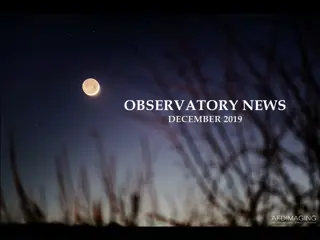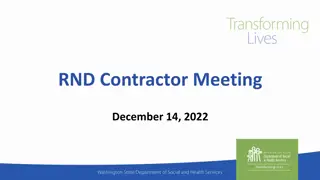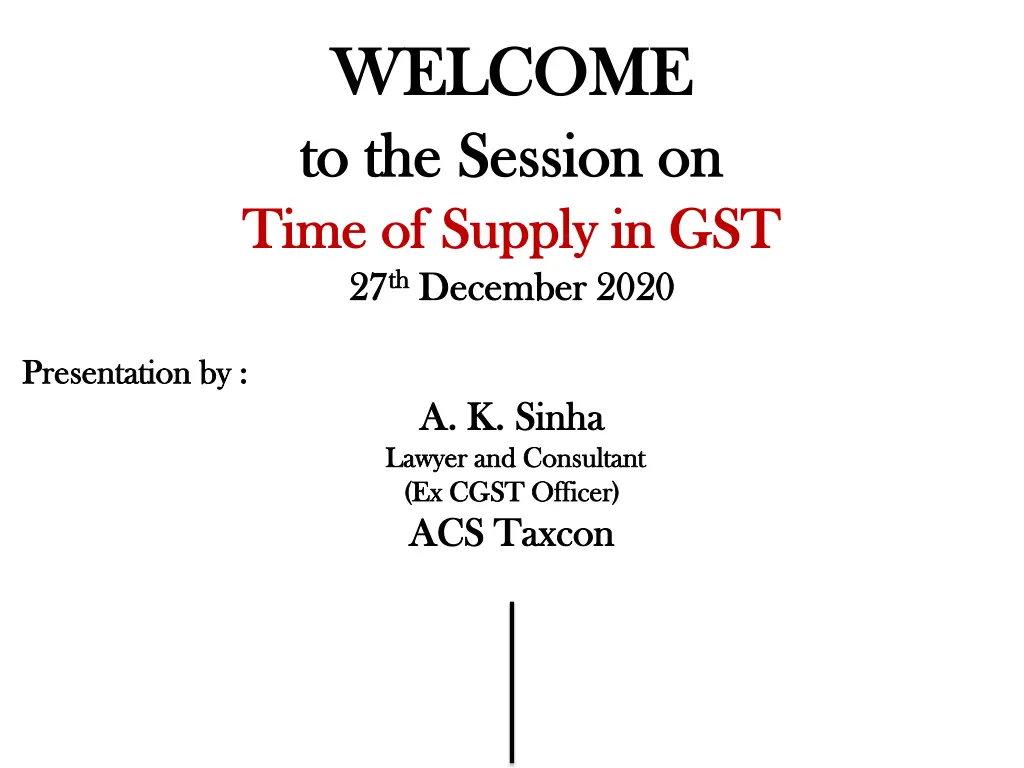
Understanding Time of Supply in GST
Explore the concept of Time of Supply in GST presented by A.K. Sinha, a Lawyer and Consultant. Discover the significance, statutory framework, and situations covered under Sections 12 and 13 of the CGST Act, 2017. Dive into the specific provisions determining the liability point and time of supply for goods and services.
Uploaded on | 0 Views
Download Presentation

Please find below an Image/Link to download the presentation.
The content on the website is provided AS IS for your information and personal use only. It may not be sold, licensed, or shared on other websites without obtaining consent from the author. If you encounter any issues during the download, it is possible that the publisher has removed the file from their server.
You are allowed to download the files provided on this website for personal or commercial use, subject to the condition that they are used lawfully. All files are the property of their respective owners.
The content on the website is provided AS IS for your information and personal use only. It may not be sold, licensed, or shared on other websites without obtaining consent from the author.
E N D
Presentation Transcript
WELCOME WELCOME to the Session on to the Session on Time of Supply in GST Time of Supply in GST 27 27th th December 2020 December 2020 Presentation by Presentation by : : A. K. A. K. Sinha Lawyer and Consultant Lawyer and Consultant (Ex CGST Officer) (Ex CGST Officer) ACS ACS Taxcon Taxcon Sinha
TIME OF SUPPLY [Ch IV, S.12 r/w 31(1), 13 r/w 31(2), 14 of CGST Act, 2017] Section 12 of the CGST Act, 2017 made applicable to IGST vide Section 20 of the IGST Act, 2017 and UTGST vide Section 21 of the UTGST Act, 2017
To start with What Tax? GST Why Tax? Constitutional Authorization (Art.246A, 269A) Supply of goods and services At what? At the time of supply (TOS) When? How much? Rate Value Rate: mainly 5, 12, 18, 28 % Value: As per S.15
Significance of TOS The liability point tax liability is fastened onto supplier The charging point Supplier gets entitled to charge tax from the recipient. The Recording Point Transaction details to be shown in the return for the period in which TOS falls. Discount Threshold point Pre supply discounts allowed, post supply not.
Statutory Framework for TOS & VOS -Liability arises at the time of supply -Time of supply is determined on many parameters. -The governing provisions are - Section 12(1to6) [for goods only] - Section 13 (1to6) [ for services only] - Section 14 [Both for goods & Services] - Section 15 :Valuation [both for goods & services] Also, CGST Rules 27 to 35
Situations covered under Ss. 12 & 13 Covers 5 situations for determination of TOS 1. Generic 2. Reverse charge liability 3. Supply of Vouchers 4. Receipt of Additional Value of supply 5. Any other situation
S. 12(1):- Tax liability arises at the TOS determined as below. S. 12(2)- Time of supply of goods under FCM shall be the earlier of the following dates: [i.e. Earlier of IP] (a) The date when supplier issues or is required to issue the invoice under S.31; or (b) Date on which supplier receives the payment with respect to the supply. the date of payment shall be the earliest of the following dates: [Expln 2 to S.12] (a) Date on which payment is entered in books of accounts of the supplier; or (b) Date on which payment is credited to the bank account of the supplier.
S. 12(3)- Time of supply of goods under RCM shall be the earliest of the following: [i.e. Earlier of GP31, and if it fails, then dt of purchase booking] (a) Date of receipt of goods by the recipient; or (b) Date on which the payment is entered in the books of accounts of the recipient; or (c) Date on which payment is debited in the bank account of the recipient; or (d) Date immediately following 30 days from the date of issue of invoice or any other document, by whatever name called, in lieu thereof by the supplier. If not ascertainable as above, then- The date of entry in the books of accounts of the recipient shall be the time of supply of goods.
S. 12(4):TOS of vouchers shall be the earliest of the following: (a) date of issue of voucher, if the supply is identifiable at that point; or (b) date of redemption of voucher, in all other cases. Note 1- Amount received in excess of the invoice amount will be [for both goods and services]- (i) If the excess amount is up to Rs 1000/-, then at the option of the supplier, the time of supply will be the date whenever the supplier raises invoice in respect of the excess amount. [i.e next invoice] (ii) If the excess amount is more than Rs 1000/-, then the time of supply of goods shall be the date of receipt of such excess amount. i.e., earliest of the following: [i.e. Earlier of book or passbook entry] (a) Date on which payment is entered in books of accounts of the supplier; or (b) Date on which payment is credited to the bank account. Example:- Inv. No 10/15.10.18 issued for Rs 99,000. Payment of 1 lakh is received on 15.12.18. for Rs. 1 lakh. Next invoice to the same party is issued on 15.01.19. TOS may be taken as 15.01.19.
Note 2- if a part of the consideration is paid in advance (eg. 5 lakh advance against supply of a Service costing 10 lakh) or invoice is issued for part payment (eg. Interior decoration of 10 rooms in a hotel is contracted for Rs 10 lakh. Advance of Rs 5 lakh given for which invoice is issued. It will be deemed that 5 rooms are done with), the time of supply will not cover the full supply. Instead, the supply shall be deemed to have been made to the extent it is covered by the invoice or the part advance payment. S. 12(6):TOS in value addition by way of interest, late fee or penalty :- Date on which the supplier receives interest, penalty or late fee which forms part of value of the original transaction. S. 12(5): Residual Rule- Where Rules 12 (2, 3, 4) fails to determine TOS, then TOS shall be- (a) Due date of the periodical return (where it has to be filed), or (b) Date on which tax is paid (in any other case)
TOS of services under FCM ; S. 13(2) r/w 31(2) r/w Rule 47: : (i) if the invoice is issued before supply of service or within a period of thirty days from the date of supply of service, the time of supply of services shall be the earliest of [i.e. Earlier of IP if Timely invoice] (a) Date of issue of invoice; or (b) Date when the payment entry in relation to supply of services is recorded in books of accounts of the supplier; or (c) Date on which the payment is credited to supplier s bank account. (ii) if the invoice is not issued within a period of thirty days from the date of supply of service, TOS will be the earliest of [i.e. Earlier of PS, if delayed invoice or not yet issued] (a) Date of provision of service; or (b) Date when the payment entry in relation to supply of services is recorded in books of accounts of the supplier; or (c) Date on which the payment is credited to supplier s bank account. (iii) If (i) & (ii) fail, then the date on which the recipient shows the receipt of services in his books of account. [i.e. Date of purchase booking]
TOS of services under RCM ; S. 13(3): The earliest of the following: [i.e. P61, and if it fails, then purchase booking date] (a) Date of payment recorded in the books of accounts of the recipient; (b) Date of debit in bank account of the recipient; (c) 60 days from the date of issue of invoice or any other document in lieu thereof by the supplier; or If it is not possible to determine the time of supply under the aforesaid clauses, the time of supply shall be the date of entry in the books of account of the recipient of supply.[purchase booking date] In case of associated enterprises, where the supplier of service is located outside India, the time of supply shall be the date of entry in the books of account of the recipient of supply or the date of payment, whichever is earlier.[earlier of payment or purchase booking ]
Comparative TOS provisions for Goods and Services
S. 13 For SERVICES S. 12 For GOODS 1. Generic Earlier of IP/PS, then PB 1.Earlier of IP ( if invoice within time) 2. Earlier of PS ie payment received or service completed ( If invoice delayed) 3. If above fail, then When service received in recipient s books (ie purchase booking) 1. Generic Earlier of IP [only I after 15.11.17] [I date when supplier issued invoice, or its last due date] [P- when supplier received payment i.e. earlier of entry in his books of account or credit in his bank account] Note (i)Quantum of service supply = to the extent covered by I/P (ii) TOS for excess receipt is next inv date. If amt is below 1000, then receipt dt or next inv dt at party s option 2. Reverse charge liability-Earliest of [GP31], then purchase booking 1. When RCM recipient received goods 2. When he made payment (as per his book or A/c entry) 3. 31stday from supplier s invoice date. 4. If above fail, then date when recipient entered supply in his books of a/c.[purchase booking] 2. Reverse charge liability- Earliest of- [P61], then purchase booking. For supply by out-India associate, earlier of P or PB 1. When RCM recipient made payment (as per his book or A/c entry) 2. 61stday from supplier s invoice / document date. 3. If above fail, then date when recipient entered supply in his books of account. Note- if supplier is out-India Associated enterprise, then earlier of when recipient entered in his books or when he made payments. [P or PB]
S. 12 For GOODS S. 13 For SERVICES 3. Supply of Vouchers 1. For supply-identifying vouchers > Date of issue of voucher 2. For other vouchers > Date of redemption of voucher. 3. If TOS determination by above three not possible- [ie Earlier of IP for FCM/ Earliest of receipt of goods or payment & 31stday from supplier s invoice date in case of RCM/ Issue date or redemption date of voucher], then TOS will be- 1. Due date of return filing (where to be filed) 2. If return not to be filed, then date of tax payment. 4. Additional value (int/fee/penalty) received for delayed payment TOS will be- Date of receipt of additional value by supplier. 3. Supply of Vouchers same as for goods 3. If TOS determination of above three not possible- Same as for good 4. Additional value (int/fee/penalty) received for delayed payment Same as for goods
A glance of Invoicing in GST:- Who will issue ? Registered & >= Rs.200/- What to Issue? If eligible to collect tax- Invoice [R-46/S.31(1)]; Revised invoice [R-53, for time gap between liability and RC grant] If not eligible to collect tax- Bill of Supply [R-49/S.39(3)(c); [by composition payer & exempt G/S supplier] Other documents- Receipt voucher [R-50] Refund voucher [R-51] Payment Voucher [R-52] Delivery challan [R-55] liquid gas, job work, non-supply, CKD 16
When to Issue? General Cases- goods on/before removal; on/before delivery services within 30 days of supply. 45 days for banking co., financial institution, or NBFC [Rule 47] special services (R-54)- ISD, Banking, Insurance, GTA, PTA Note- Removal means- [S.2(96)] (a) dispatch for delivery by supplier or any other person acting on his behalf, or (b) collection by the recipient or any other person acting on his behalf Special Cases- 1) Sale on approval when approval granted; or 6 months from clearance [Circular 10/10/17-GST dt 18.10.17 for jewellery and other & Cir 22/22/17-GST dt 21.12.17 for Art work to gallery] Remove on Delivery challan + Eway bill (if applicable); carry invoice book] 17
2) RCM supply - Self invoice- on the date of receipt for S9(3); or at month end for s.9(4) - Payment voucher at the time of payment - E-way bill (where applicable) 3) SKD/CKD- Transportation of goods in knocked down condition in more than one consignment:- [Rule 55(5)] Issue the complete invoice before dispatch of the first consignment. Issue delivery challan for each of the subsequent (?) consignments, giving reference of the invoice Consignment will move on delivery challan + duly certified copy of invoice + e-way bill (full value on each DC) Send original copy of invoice with the last consignment. Note- seems impracticable where all consignments are spread over span of months or years. 18
4) Continuous supply [S.2(32)-continuous/recurrent under a contract, whether or not by pipeline etc, for which regular/periodical invoices are issued + Govt notified supplies ] --Of Goods- a. Before / at each successive statements b. At the time of each payment --Of Services- i. If payment linked with event event completion date [eg milestones like plinth, floor, plastering in building line] ii. If not linked -date of payment (if identifiable) -date of receipt of payment (if not identifiable) 5) If supply ceased on the date of cessation 19
6) If invoice can not be issued at removal:- [eg when weighment is to be done after clearance of goods] -- Delivery challan to be issued. -- No e-way bill for distance up to 20 km. 7) GTA- shall issue a tax invoice or any other document in lieu thereof (by whatever name called) containing: Gross weight of consignment Name of the consignor and the consignee Registration number of carriage (vehicle) Details of goods transported. Details of place of origin and destination GSTIN number of the person liable for paying tax (whether as consignor, consignee or GTA Other prescribed information u/Rule 46. 20
8) Passenger Transport:- [Rule 54(4)] Ticket issued in case of passenger transportation service is tax invoice (form, name, serial number, recipient s address immaterial. But other information of rule 46 should be there.) 9) Invoice by bank, FI, NBFC and insurance company May issue consolidated tax invoice on monthly basis. [the word consolidated -wef 13.10.17. May wef 15.11.17] Can be made available physically or electronically. May not have serial number and address of recipient. However, other details of rule 46 should be there. 21
Illustration of service supply- -I supplied service on 31st May [then last day for issuing invoice will be 29th June] -I issue invoice upto 29th June the Tax liability will accrue on 29th June (ie like goods, liability will trigger with invoice). Accordingly I will pay the tax on 20th July. Interest, if any, will start only from 21st July. - I don t issue inv upto 29th June then the tax liability will accrue on 31st May only, and therefore, I will pay tax along with interest. The interest will start from 21st June.
Relaxation from tax payment on receipt of advances [Notfn 66/17-CT 15.11.17]:- -available only to goods suppliers. Upto 12.10.17 no relaxation to any G/S supplier From 13.10.17 to 15.11.17 relaxation only to goods suppliers with below 1.5 cr ATO [in last yr, or expected ATO in current yr]. [Notfn 66/17-CT 15.11.17] After 15.11.17 relaxation to all suppliers of goods [irrespective of turnover.] [ but not to Composition payer & RCM payer] Thus, GST on advances received was payable by-- Upto 12th Oct 17- Entire goods sector + entire service sector (uniformly) 13th Oct to 14th Nov 17 only large goods sector (+composition & RCM payer) + entire service sector. From 15 Nov 17 Entire service sector + composition & RCM payer [Thus, small businesses in goods sector were to pay till 12th Oct 17; Big businesses in goods sector were to pay till 14th Nov 17; but every one in Service Sector was to pay always.]
Example of S.12(2) i.e FCM goods- Seller A sold goods to buyer B and issued invoice on 1st October 2017. Find TOS if- (a) A removes the goods for delivery to B on 15 October. (b) A delivers the goods to B on 30 September. (c) B collects goods from A on 10 October. (d) B makes full payment on 30 September. (e) of Payment from B comes into the bank account of A on 29 September. A records it into his books of accounts on 2 November. The goods were dispatched from the warehouse of A on 5th October. Answers: (a) 1st October. [Earlier of IP. No advance payment is there. So Invoice date is the TOS] (b) 30 Sept. Further, It will be an offence i.e. supply without invoice. For goods, the last date of raising invoice is before or at the time of removal / delivery. (c) 1st October. [earlier of IP. Invoice can be issued before / at removal] (d) 30th September [earlier of IP] (e) For three fourth supply, TOS is 29th September (earlier of IP. Payment date is earlier of book & pass book entry). For rest one forth supply, TOS is 1st October i.e. date of invoice.]
S. 12 (2) Goods FCM (slide-1). TOS = earlier of IP [tax on advance payment was for all upto 12.10.17; For bigger ones upto 15.11.17; & for none thereafter] Supply of shampoo / detergent (Movable goods) Date of removal Date of invoice Date of payment Date of receipt shown by recipient i.e. purchase booking Time of Supply 25/08/2017 21/08/2017 Bank credit- 05/09/17 In books- 04/09/17 01/09/2017 21/08/2017 25/08/2017 31/08/2017 Bank credit- 19/08/17 In books- 16/08/17 01/09/2017 16/08/2017 25/08/2017 31/08/2017 Bank credit-05/09/17 In books- 04/09/17 23/08/2017 25/08/2017
S.12(2) - Goods FCM (slide 2)Sale on As is where is condition. Where no movement involved, due date of invoice as per S.31(1)(b) is when delivered or when made available, as the case may be. Eg. Goods sold as it is while lying at warehouse. Date of removal Date when delivered or made available Date of invoice Date of payment Date of receipt shown by recipient i.e. purchase booking date Time of Supply 21/08/2017 30/08/2017 29/08/2017 21/08/2017 Bank credit-05/09/17 In books- 04/09/17 01/09/2017 Supply of Lifts/Escalator 31/10/2017 25/08/2017 31.10.2017 02/11/2017 Bank credit-08/11/17 In books- 04/11/17 04/11/2017
S.12(3) Goods RCM (Slide1). TOS= GP31, then PB; Bidi manufacturer purchases bidi leaves 31st day after sales invoice date falls on (c) Remarks I received goods on My Bank A/C debited i.e. I made payment on (b) My supplier issued sales invoice on TOS [Earlier of (a) &(b). If it fails then (c)] I booked the purchase in my books of account (a) 15/07/2017 20/07/2017 10/07/2017 10/08/2017 No advance paid 15/07/2017 20/07/2017 15/07/2017 10/07/2017 10/08/2017 Advance paid 15/07/2017 Supply & payment delayed after issue of invoice -- -- -- 10/08/2017 10/08/2017 No advance, no invoice -- -- -- -- 30.09.17 30.09.2017
S.12(3) Goods RCM (Slide 2). TOS= GP31,then PB Bidi manufacturer purchases bidi leaves Date of Receipts of goods Date of receipt of invoice Date of supplier s Invoice Date of Payment Date when recipient booked the supply in his books Time of Supply 30/08/2017 29/08/2017 21/08/2017 Bank debit-05/09/2017 In books- 04/09/2017 01/09/2017 30/08/2017 30/08/2017 01/09/2017 21/08/2017 Bank debit-05/09/2017 In books- 04/09/2017 01/09/2017 30/08/2017 30/08/2017 01/09/2017 21/08/2017 Bank debit-09/08/2017 In books- 04/08/2017 01/09/2017 04/08/2017
S.13(2) Services FCM. TOS= earliest of IP/PS, then purchase booking date. Service Invoice issued on Invoice was due latest by Payment credited in supplier s bank account Paymenet entered in supplier s books of accounts Services supply started on Services supply completed on Recipient entered the purchase in his books on Time of Supply 12.10.17 15.10.17 01.12.17 03.12.17 15.08.17 15.09.17 30.08.17 12.10.17 14.11.17 10.10.17 14.08.17 10.08.17 15.08.17 10.09.17 31.12.17 10.08.17 Row 1:- Since invoice is timely one, we will take earlier of IP ie I=12 oct; P= 1 December. Row 2:- Since invoice is delayed one, we will ignore the invoice and take earlier of PS ie P= 10 August, S= 10 Sept.
S.13(3) Services RCM. TOS= P61. If this fails (not otherwise)- then purchase booking date. For overseas associated enterprise earlier of payment or purchase booking. Reverse charge section 13(3) Dt of invoice issued by supplier Date of completion of service Payment by recipient Entry of receipt of services in recipient s book Time of supply General 31-Oct-17 31-Oct-17 20-Nov-17 30-Nov-17 20-Nov-17 Advance paid(service) 31-Jan-18 31-Dec-17 05-Nov-17 31-Oct-17 05-Nov-17 Delay in payment (Max. 60 days from date of invoice) 31-Oct-17 31-Oct-17 Not yet done 31-Oct-17 01-Jan-18 Where P61 fails No inv issued 31-Oct-17 Not yet made 31-Dec-17 31-Dec-17 Service received from associated enterprise located outside India (Inv irrelevant. Decided by payment & purchase booking) 31-Oct-17 30-Nov-17 5-Apr-18 31-Mar-18 31-Mar-18 Service by unregistered person, no payment made, no inv issued 30-Nov-17 05-Dec-17 05-Dec-17
Rate Change (Goods) [Section 14] [notwithstanding s.12, 13] Three dates to be considered 1. Due date of issuing invoice 2. Actual date of invoice 3. Supply Completion date If any two events of 1, 2, 3 above occur before change, then old rate will apply. Rate change (Services) Three dates to be considered 1. Actual date of invoice 2. Date of payment-receipt 3. Date of supply-completion If any two occur before change, then old rate will apply
Change in Tax Rate i/r/o Goods / Service Supply [S.14] Supply made before tax change Supply made after tax change If both(inv and payment dt) are before change then the earlier one, otherwise date of that one( inv or payment) which occurs after change Earlier of Invoice or Payment
GOODS / SERVICE BEFORE AFTER TOS i) Invoice issued, payment Earlier one Received ii) Invoice Issued Payment Received Invoice issue date iii) Payment Received Invoice Issued Payment Receipt dt. [i.e. if supply is before change- then earlier of inv or payment] Note- Date of receipt of payment will be earlier of suppliers book entry or his account credit dt. However if a/c crediting is after 4 working days from the rate change then crediting date( and not the book entry date will be taken as the date of payment.
GOODS / SERVICE BEFORE AFTER TOS i) Invoice issued, payment Received Earlier one Payment Received Payment receipt date ii) Invoice Issued Invoice Issued Invoice Issue date iii) Payment Received [i.e. if supply is after change- then if both IP are before change (same sided), then earlier one; and if they are different sided, then latter one.]
Point when liability triggers:- If service invoice issued at/before/after(but within 30/45 days) of supply (ie timely invoice), then- Earlier of IP ie. Actual dt of inv or payment entry in book / pass book Thus, [i.e. you give the services, but tax-payment-liability will will not trigger until you either issue the timely invoice, or receive the payment] [i.e. For goods, the tax-payment-liability will triggers right on supply, while for services, it triggers on supply only when invoice and payment are delayed.]
Illustration-1:- The consultancy service is given on 5th Janurary. If invoice is issued within permissible time i.e. by 4th February, then it is the supply of February and tax will be paid on 20th March with no interest. But if the invoice is delayed and issued on 6th February (ie beyond 30 days), then it will be a supply of the supply- month itself ie of January, and accordingly, tax will be paid on 20th February. In any other case, TOS will be when purchase is booked.
Illustration-2: - -I supplied service on 31st May [then last day for issuing invoice will be 29th June] -I issue invoice upto 29th June the Tax liability will accrue on 29th June (ie like goods, liability will trigger with invoice). Accordingly I will pay the tax on 20th July. Interest, if any, will start only from 21st July. - I don t issue inv upto 29th June then the tax liability will accrue on 31st May only, and therefore, I will pay tax along with interest. The interest will start from 21st June.
For goods, the TOS will generally be actual or due date of invoice, ie. Date of removal / delivery (unless invoice issued any earlier) Special TOS rules for Continuous supply Sale on approval TDR
TOS in Composite supply- Every composite supply is treated as supply either of goods or services on the basis of principal supply component of it. Accordingly TOS for goods or services will apply. TOS in Continuous supply based on date of invoice , which in case of goods is to be issued at/before successive billing/payment; and in case of services, will be - [r/w invoice Section 31(4, 5)] On/before Due date of payment in contract; or If not there in contract, then at/before time when supplier receives payment; or On event completion (if it is pre-requisite for payment) Service supply online:- No separate provision Supply made through E-commerce operator:- No separate provision. Accordingly, the same provisions as to time of supply of goods will be applicable whether a supplier makes supply through e-commerce entity or the e-commerce entity himself makes the supply. Service import- No separate provision. So, apply TOS for RCM
Time of Supply for TDR (transferable development rights): The tax liability of builder / developer and transferor of TDR arises when the possession of constructed complex, building or civil structure is handed over to the owner of TDR. [N/N 4/2018 CTR & 4/2018 ITR both dated 25.1.2018] When builder agrees to supply free flats/building/civil construction as a consideration for TDR, there happens two supplies- Supply of development right by land owner to builder Supply of construction service by the builder to land owner. Both are subject to GST. TDR means certificates issued in respect of category of land acquired for public purposes either by Central or State Governments in consideration of surrender of land by the owner without monetary compensation, which are transferable in part or whole. TDR allows the owner of TDR additional Construction area (FSI). Sale of TDR is not sale of land. It is also not actionable claim. GST is payable on it. Earlier TDR was subject to sales tax. In Sumer Corpn V State of Maharashtra (2017) it was held that TDR received by developer from SRA (Slum Rehab. Auth.) is other valuable consideration and is subject to sales tax (works contract tax) on the construction of flats.
Multiple invoice for single consignment- Actual/due date of respective invoice for non- composition RD Actual/due date of invoice or payment date (whichever earlier) for composition RD Ie Note:- Payment of tax on receipt of advance is applicable on composition dealer, and also on Reverse charge payer.
Reverse charge payment- (eg Govt auction)- GP 31 Vouchers etc Date of issue of voucher, if the supply is identifiable at that point. Or Date of redemption of voucher, in all other cases TOS of composite supply- That of the principal supply
TOS in continuous supply For non-composition payers Actual/due date of invoice for successive statement of accounts (SSOA). Invoice will be issued at / before SSOA. For Composition payers Earlier of such invoice or payment. [Payment dt means date of book/pass-book entry of supplier] Goods by or through E-com operators No separate TOS rule prescribed TOS for value addition by interest, late fee, penalty etc Date when interest, fee etc received. [or earlier of IP/PS ?]
Excess amount than invoiced is received:- For upto Rs 1000/-, you may take it as on next invoice date or payment receipt date at your option. For above Rs 1000/- - Earlier of IP/PS, then purchase booking. [how to do in GSTR-1?] RCM:- P61 or purchase or payment entry in books.[Date of service completion will be relevant for deciding 30 days for invoicing.]
RCM services received from- Associated enterprise within India- Same rule as for other supplier. [ie P61 or purchase /payment booking. Associated interprise outside India P (and not 61) or purchase / payment booking [ because there happens cross charging, and not invoicing in inter branch transfers] When to issue service invoice? At/before/after (but within 30 days for others & 45 days for Fis/NBFCs) [S.31(2) read with Rule 47] TOS in case of Works Contract / composite supply As for services TOS for mixed supply As for supply of highest rated component.
Few FAQs from the IDTC study material Q. I have received the payment but I have not deposited the cheque in the bank account. What is the date of receipt of payment? Ans. The date of receipt of payment is date of entry in the books of the supplier or date of credit in his bank account, whichever is earlier. Q 32. What is the rate of GST to be charged on advances received before the change in rate of tax if the supply is completed after the change in rate of tax? Ans. If the invoices is also raised before the change in rate of tax then the old rate will be applicable even though the supply is complete after the change in rate of tax. Else, the new rate will be applicable. Q 33. If 95% of the work is complete before the change in rate of tax but invoice can be raised only after completion of supply, then what is the rate of tax to be applied? Ans. Assuming the supply is completed after the change in rate of tax, new rate will apply.
Q 34. In case of Construction Contracts, builders remit taxes on receipt of payment or completion of slabs as provided in the contract. What will the impact due to change in the tax rates? Ans. For payments received before the change in rate of tax, if invoices are also raised before the change in rate of tax, old rate will be applicable. Else the new rate will be applicable. For slab completion before the change in rate of tax, if invoices are also raised before the change in rate of tax, old rate will be applicable. Else the new rate will be applicable. Q 35. How do we compute GST liability on supplies which are liable to tax under reverse charge? Ans. Separate provisions had been provided under the erstwhile service tax laws to determine the service tax payable on reverse charge mechanism which is linked to date of payment to the service provider unless the payment is made within 3 months of the date of invoice. However, such provisions are not there in the CGST Act, 2017. Accordingly, general provisions relating to change in rate of tax shall be applicable in determining the appropriate rate of tax.
Q. Will I be required to pay GST at the new GST rate on Debtors outstanding as on the date of change in the rate of tax? Ans. If the supply was complete for such outstanding balances and the invoice is also issued before change in rate of tax then old rate will be applicable. Else the new rate will be applicable. Q 37. I have raised the invoice with old rate of tax but now I am required to remit the taxes based on new rate of tax. Can I recover the additional tax payable from my customer? Ans. Yes, you can raise a supplementary invoice / debit note to recover the additional tax from the customer. Q 38. In case of payment received more than invoiced amount, will the customer be able to take credit of additional taxes paid? Ans. If the customer is entitled to claim the credit of tax mentioned in the original invoice, the input tax credit of additional taxes can be availed which is subject to conditions specified in this regard.
Examples- 1. Sodexo meal coupons redeemable against various food items from various stores. TOS will be date of redemption. 2. Supply is deemed to have been made to the extent of part payment (advance) received. Doubt- Rate changed from 12 to 18 on 15Aug. For a service supply of 10 lakh, 5 lakh advance is taken on 10 Aug. Since supply is deemed to have been made to the extent of part payment (advance), that means both Supply and payment (to the extent of 50%) is complete before change, and only invoice is issued after change. Going by the majority rule, on this 5 lakh part payment Rate of 12%, and on the rest 5 lakh 18% rate should apply. Is it correct?
THANK YOU ACS TAXCON ACS TAXCON Lawyers and Tax Consultants 50


